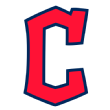According to the forecasts from our friends at FiveThirtyEight, the current pool of six leading championship contenders includes the same teams as before the season.
While the top six are the same, their order has shuffled quite a bit. And no team's aspirations have been more validated than those of the Los Angeles Dodgers, who currently have about a 1-in-3 shot at winning it all by these figures. That's about as good as you're going to do in the random world of baseball's postseason.
If there is at least some clarity about who the favorite is in the National League, there is no such clear-cut front-runner in the American League. That's another thing that hasn't changed much since before the season. The Astros appeared to seize that designation and were sitting second to the Dodgers with a 23 percent championship probability at the All-Star break, but the second half hasn't been kind to Houston.
Any team would love a shot at the Dodgers in October. But, let's face it, everyone Los Angeles plays in the postseason will be a heavy underdog.
We've got some time to kill before October, so let's take the opportunity to evaluate the leading AL contenders through the prism of how they match up with Los Angeles. We'll do them in order from toughest matchup to easiest matchup. In each case, we're assuming full health for each roster when plausible.
1. Cleveland Indians
 Historical precedent: Cleveland beat the Brooklyn Robins 5-2 in a best-of-nine series in 1920. The Indians, led by Tris Speaker, took advantage of a narrow window between the downfall of the Black Sox that season and the rise of the Babe Ruth-era Yankees.
Historical precedent: Cleveland beat the Brooklyn Robins 5-2 in a best-of-nine series in 1920. The Indians, led by Tris Speaker, took advantage of a narrow window between the downfall of the Black Sox that season and the rise of the Babe Ruth-era Yankees.
Why I like the Indians: For each team, you have to see how the pitching staffs match up -- rotation versus rotation, bullpen versus bullpen. In Cleveland's case, the Indians check three key boxes. They have the ace who can go toe-to-toe with Clayton Kershaw in Corey Kluber. They have a dependable closer in Cody Allen, who seems to have righted the ship after some midseason travails.
Perhaps most importantly, the Indians have the super reliever you want between Kluber and Allen in Andrew Miller, assuming his knee problems have been solved by the postseason. (If they haven't, drop Cleveland to last in these rankings.) While Miller is a dynamo against all batters, you have to like Terry Francona's ability to match him in key spots against the Dodgers' top lefty hitters, Corey Seager and Cody Bellinger.
You also have to like the Indians' ability to match high-quality lefty hitters and switch-hitters against the Dodgers' righty-heavy bullpen. That assumes they can survive the early innings, when the Dodgers might be able to throw Kershaw and fellow lefties Alex Wood and Rich Hill at the strength of the Cleveland attack, then force wholesale platoon substitutions in the middle innings, potentially leaving Francona with a short late-game bench.
2. Houston Astros
 Historical precedent: There's none in the World Series, but back in the strike-shortened 1981 campaign, the Astros and Dodgers squared off in the previous version of the National League Division Series. Each team took a share of the NL West during the bizarre split-season format. The Dodgers won the best-of-five series 3-2, taking the deciding game when Jerry Reuss outdueled Nolan Ryan.
Historical precedent: There's none in the World Series, but back in the strike-shortened 1981 campaign, the Astros and Dodgers squared off in the previous version of the National League Division Series. Each team took a share of the NL West during the bizarre split-season format. The Dodgers won the best-of-five series 3-2, taking the deciding game when Jerry Reuss outdueled Nolan Ryan.
Why I like the Astros: The first metric I looked at when slotting these teams was current roster value, and the Astros maintain a sliver of an edge over the Indians in that regard. So it's largely by subjective criteria that I drop Houston behind Cleveland, and I have to acknowledge I might have been swayed by the Astros' lackluster play in recent weeks. But we still haven't seen the healthy version of the Astros for quite a while, and that team, not the Dodgers, looked early in the season like the club most likely to dismantle the rest of the majors.
Still, I like the core of the Indians' pitching staff better than Houston's. That is, I like a rolling Kluber over a scuffling Dallas Keuchel. I like Allen a little bit better than Ken Giles. And while Houston might have baseball's best super reliever option other than Miller in Chris Devenski, he's still not Miller. That said, if Lance McCullers gets healthy and regains his early-season form, you have to like him better than Cleveland's No. 2, Carlos Carrasco.
Also, Houston has a clear Achilles' heel in the lack of a dependable high-leverage lefty killer, and that wouldn't bode well against a Dodgers offense anchored not just by Seager and Bellinger, but also key lefty hitters such as Curtis Granderson and Adrian Gonzalez, who you can force out of the game with a good lefty.
The Astros' offense has been off-the-charts good and that's why this would be such a great matchup. Houston's attack is deep and tremendously balanced between power and balls-in-play attributes. Who wouldn't love to see Jose Altuve face Kershaw in a big spot? While I still think the Astros' staff is good enough to help the elite offense win it all, it's not as strong from top to bottom as the one in Cleveland.
3. Boston Red Sox
 Historical precedent: The Red Sox beat the Robins 4-1 in the 1916 World Series. Babe Ruth, then just 21, won Game 2 for Boston, going all 14 innings of a 2-1 Red Sox win.
Historical precedent: The Red Sox beat the Robins 4-1 in the 1916 World Series. Babe Ruth, then just 21, won Game 2 for Boston, going all 14 innings of a 2-1 Red Sox win.
Why I like the Red Sox: Chris Sale may be baseball's best player this season, and the thought of getting one or two showdowns between him and Kershaw in the World Series is really exciting. But beyond that, I don't like Boston as much as the AL's other two division leaders. Just in terms of the aforementioned roster-value metric, the Red Sox are a clear third behind Cleveland and Houston and are only a hairbreadth better than the New York Yankees.
David Price's tricky elbow is a huge problem, and he's one of the question marks that seems most likely to linger into October, perhaps beyond. Even if Price can get back on the mound, it's not like he was putting up Cy Young numbers anyway. After Sale, the Red Sox would be looking at a lot of guys with fielding-independent numbers of lower-rotation options.
That puts a laser beam of focus on the Boston bullpen. Craig Kimbrel is rock solid when it comes to closing games, but you've got to get the ball to him. Kimbrel has been Boston's only dependable option in save opportunities, and that includes spots in which a hold would be awarded. You have to like what Brandon Workman has been doing since the All-Star break, but he's a guy who had a 5.11 career ERA in 128⅔ big-league innings entering this season. The Dodgers have more weapons than anybody when it comes to exploiting middle-relief holes.
The Boston offense has been disappointing this season, but it's an athletic bunch made up of players who have comprised baseball's top defense (one spot ahead of the Dodgers). Still, if Jackie Bradley Jr.'s thumb injury turns out to be something that lingers into autumn and Dustin Pedroia's bad knee continues to hamper him, it's hard to see Boston putting up crooked numbers against a stacked Dodgers pitching staff.
All of these teams have star power and they all have a handful of vulnerabilities, whereas the Dodgers appear to be a complete team capable of winning with a roster full of options for every possible situation and matchup.
No team's down roster, say Nos. 5 to 40, can compete with Los Angeles' roster. To beat the Dodgers, someone's star players would have to go off, whether it's Washington's Max Scherzer, Stephen Strasburg and Bryce Harper in the National League bracket, or Cleveland's core of Francisco Lindor, Kluber and Miller. It's the playoffs after all, and one hot star is sometimes all it takes to unknot a tightly tangled series.
